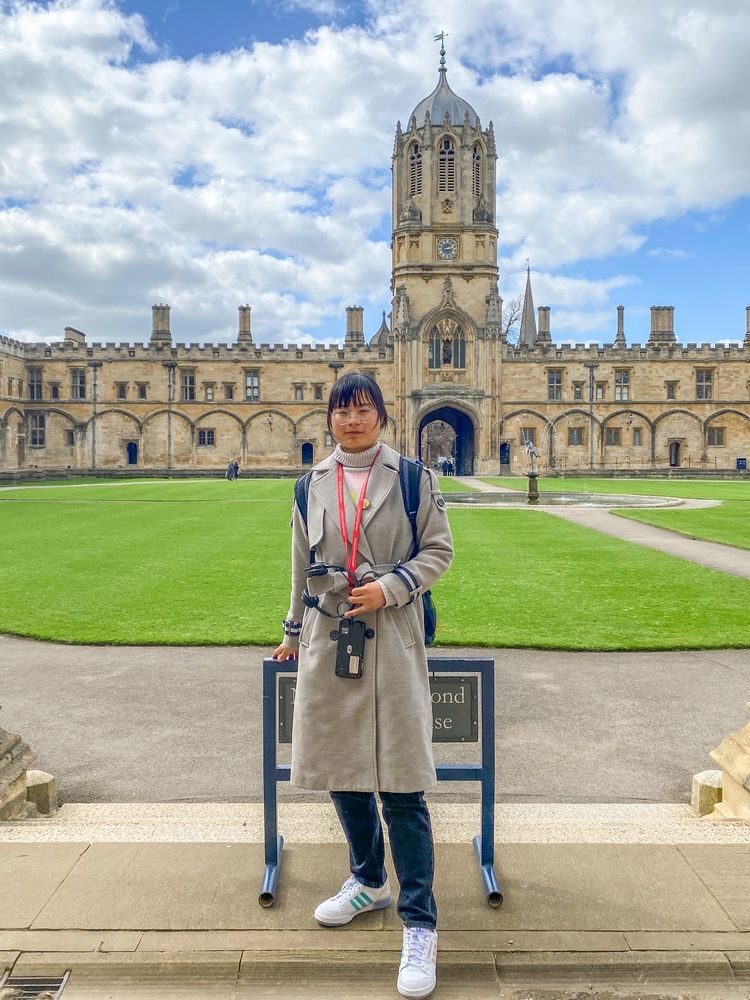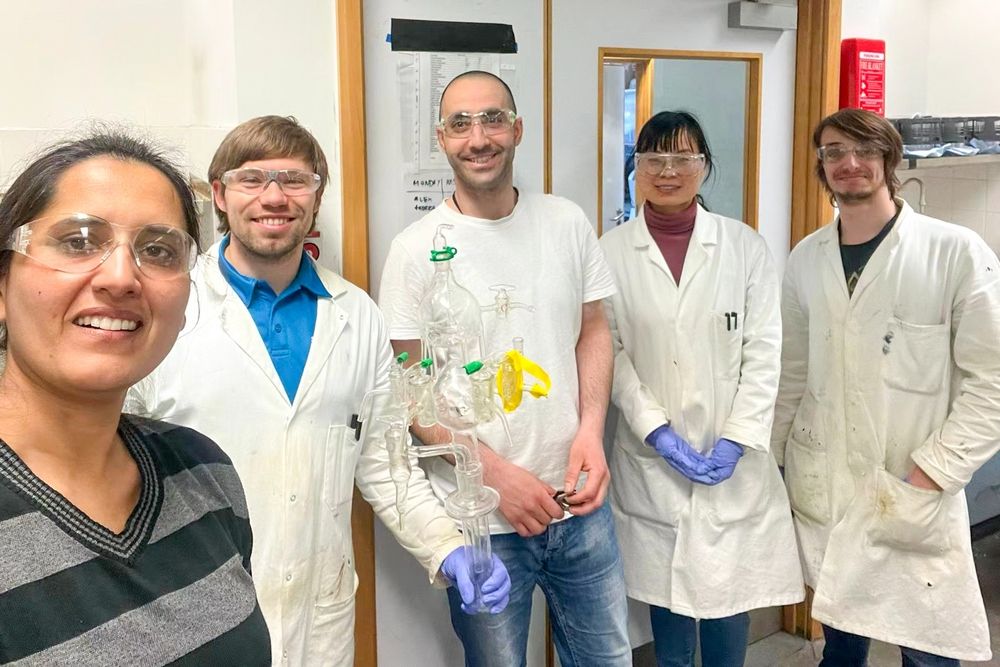When I was in college, I chose to go on to a graduate program because I thought I was not ready to work, and I thought it should be a very interesting thing to do experiments in the lab, fiddling with bottles and jars and dealing with substances every day. During my doctoral studies, I only thought about doing experiments well and graduating successfully, and I never thought about the role of research in our growth.
Back at Shaanxi Normal University, Prof. Fang Yu often told us during group meetings, “Research is the best way to train and cultivate people.” At first, I did not understand the profound meaning of this statement. It was not until I watched my junior fellow students gradually grow up from young students to adult men and women who could take charge of their own lives through rigorous research training that I slowly began to understand this statement. At the same time, I can’t help but reflect on my own growth in scientific research, whether I have also realized the metamorphosis like them? When I think about the years of study in the group, I have indeed learned a lot, and it is these gains and growth that have given me encouragement and motivation to continue my study.
The university I visited as a visiting scholar is the University of Southampton in the UK, and my supervisor is Prof. Steve Goldup, whose research interest is on mechanically interlocked molecules. Mechanically interlocked molecules are currently at the forefront of chemistry, and the synthesis of these molecules is extremely challenging. I was not capable of doing this research in terms of the relevance of the topic or the need for experimental skills. Therefore, I was very happy to become a “graduate student” again, studying and doing experiments with my labmates under the guidance of my supervisor, and the life of setting up reactions and doing columns every day was very fulfilling.

Careful observation will reveal that excellent people are actually very much like. At SNNU, Prof. Fang is our role model, and I especially admire him for being always so energetic. At Soton, Steve is the same, always there at the lab from 7am to 6pm, saying “How are you?” followed by “How’s chemistry?” Although he only had a simple sandwich for lunch, he would always meet someone at lunch while discussing experiments, Steve doesn’t seem to be like the typical British professors in most people’s eyes, because he is really too intensely competitive. This also provoked me to rethink the word competitiveness, that perhaps competitiveness is more from the perspective of bystanders to evaluate the behavior of the person concerned, so the pleasure and enjoyment of the person concerned become pain and suffering in the eyes of the bystanders. I wonder if this is the reason why successful people radiate with optimism and positive energy!
There was a lot to learn in the new lab environment, and the people around me became my teachers. Especially Andrea, a third-year PhD student from Italy, was a warm-hearted person. Although his catchphrase is “I am a loser”, Andrea is the first one to come to the lab and the last one to leave almost every day, and he is also the most knowledgeable graduate student in the lab. I think the best way to describe him is “saying the most negative things while doing the most positive things”. One day at the end of January 2023, when I arrived at the lab in the morning, Andrea came over and told me that a project he had been working on for a year was “dead”, and the atmosphere instantly froze. I tried to rack my brain to think of a way to comfort him, but I could not think of the right words, because I knew very well that his precursor synthesis needed to go through more than 20 reaction steps, and this blow was too big for him. After a few moments of silence, Andrea told me that he needed to talk to his supervisor as soon as possible. When he came out of the supervisor’s office, I went to him to find out more about the situation, and he said that the supervisor had analyzed the results with him, and then said “Fine, we are learning”. In the afternoon, Andrea started his busy experiment again ......

My labmates at Soton, Postdoc Mandeep, Postdoc Martin, Postdoc Abed, me, and PhD student Andrea, from left to right.
In fact, it is normal, because failure is the norm in scientific research, and a great achievement is the crystallization of countless failures. We all know that “failure is the mother of success”, and we have heard the stories of great people who faced failure again and again, and ultimately succeeded through perseverance. However, when we really face failure, it is difficult for us not to be discouraged and not to give up, because it requires strong willpower. I think the failure of Andrea’s project was just one of the many failures encountered by the group. Instead of indulging in being depressed and disillusioned, it would be better to reorganize our thoughts and continue to do things in a different way. This incident also made me realize another meaning of the group’s research culture of “Ironman Spirit, AhQ spiritual victory method, and There are Always More Solutions Than Difficulties”. Just keep on the cultivation and not asking about the harvest. Do your own work well, don’t care too much about the result, and don’t let the bad result affect the pace of your progress.
Despite being more than 8,000 kilometers apart and having very different research directions, the two research groups are actually very similar in that they both have a “Live for Science” leader, hardworking students and a positive research atmosphere. At the School of Chemistry of Soton, every time someone asked me where I was from and what my research interests were, I would immediately open the group’s website and give them an introduction. I was really incredibly happy when a Polish postdoc doing fluorescence studies told me that he had read Prof. Fang’s articles and told people around him that our group had done a lot of excellent works in sensing.
I feel so lucky that I have met so many good teachers and lab partners, so I can make my way to learn and grow on the road of scientific research. The endless literature reading, experimenting and problem solving will help us to become better!